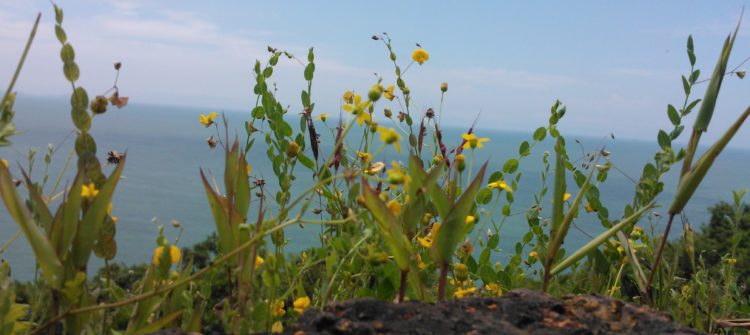Sustainable Living
“Nature can provide to satisfy man’s need; but not his greed”
These words by the father of our nation, Mahatma Gandhi, are something that we have come to better understand and appreciate as we at Total Organiacs began our journey on this long road. For someone who loves to cook, we know how valuable good ingredients are when it comes to making that satisfying plate of food.
Growing up in Bangalore (or Bengaluru as it is called now) the once garden city, we grew up amidst the green hue of the rich canopy of flora that surrounded us and really enjoying it’s abundance. But in the last few years as Bangalore has been busy migrating from being the garden city to the I.T city, we have seen the words of the Mahatma unfold before our eyes. What was once a city able to sustain itself now has fallen into chaos due to our greed. This is not an isolated case as you very well know, many places across India and the world are being “urbanized” taking away from its true essence.
We know that if a system cannot sustain itself, it cannot support others depending on it for long, and this holds good with agriculture too.
In school we learned that Agriculture is the cultivation of plants, animals or any other form of life for our benefit. I did not realize how great that benefit was till we got on the road and started interacting with farmers and understanding the challenges they have to overcome in order to feed us.
One of the farmer casually remarked that farming is the only profession wherein the person responsible for our well being and survival is never given the appreciation let alone the recognition he/she truly deserves.
According to the farmers, major challenges they face are:-
1) Providing enough food and commercial crops to the consumers, whose population rate is constantly increasing
2) Reduction in natural resources (cultivable land, rain, ground water etc) over a period of time leading to loss of yield.
3) Dependency on artificial entities (fertilizers, pesticides etc) to improve yield.
To add to the above challenges activities like deforestation, mining, mass industrialization, unwarranted construction in the guise of development have affected cycles of rain, led to reduction in soil fertility and loss of cultivable land.
Realizing that the pressure the farmer faces is immense when it comes to management of resources and planning ahead, we wanted to better understand how he does it all and what are his major challenges. We got to see that it is a simple question of supply and demand, if the demand is great, then only the quantity of supply matters, and not always the quality.
Agriculture was always about feeding the nation till about the 1940’s, when it started to be more of a business. The industrial revolutions, with all the scientific breakthrough’s that happened during that era with regard to chemical pesticides, fertilizers etc made big corporations eye this sector which was until then largely family run and done at smaller scales.
If you walk into a super market today you would see more of processed food products rather than true wholesome foods. Essentially the basic necessity of life; food has been commoditized into a profit driven industry of food products and we the consumer are forced to buy. To truly understand the repercussions of this we must also realize, the same big corporations buy crops from these farmers at huge volumes at subsidized rates thereby controlling the entire chain.
Total Organiacs would like to make a change at this fundamental level. De-centralize the food processing industry and de-regulate the control the big corporations have over us and the farmers such that the farmers get the fair price for their produce and the consumers get good quality products at an affordable rate.
One of the ways to go about this is to encourage sustainability. A concept we observed and understood by staying with the farmers. Living within our means, and not allowing external factors affect our growth. It is like living on a fixed salary without having the ability to take a loan or use a credit card, we are aware of what our resources are and in truly understanding its value we learn on how to maximize on its returns. A simple example of this principle would be composting. Most farmers use plant waste and recycle them as organic manure, thereby eliminating need the for fertilizers.
Many farmers practise this method of farming wherein they utilize only those resources that are available to them to maximize sustainability without external influences like mechanization or chemical additives coming into the picture.
On a deeper level it is a holistic approach to farming all 3 major elements of the agricultural cycle (Man, Earth, Flora & Fauna) are benefitted. The concept of sustainable agriculture therefore takes the focus away from just the business aspects of farming and takes a deeper and a more moral stance; ensuring that the Earth and all other living beings that are also part of the cycle are also considered.



